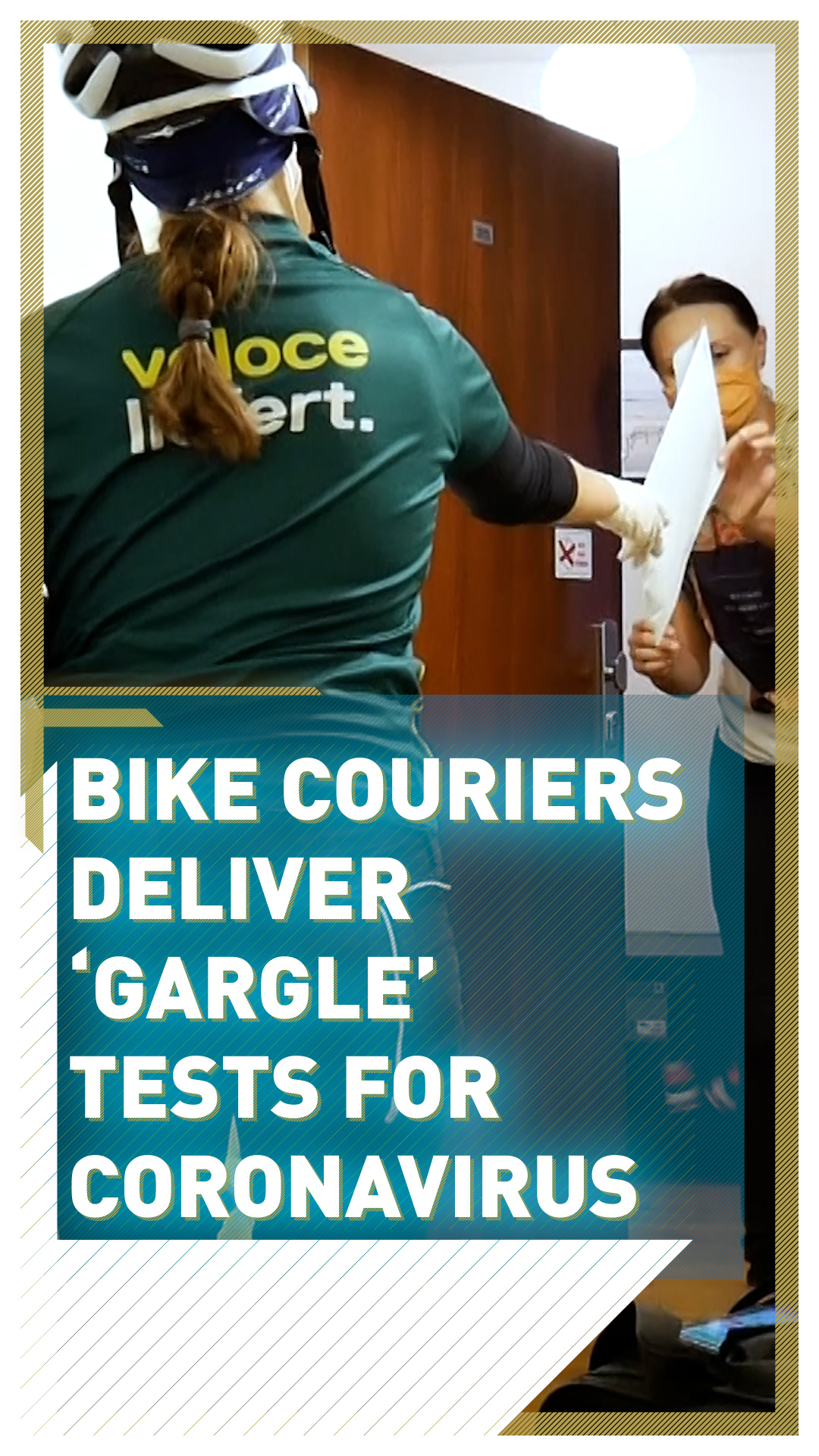01:30

Austria's capital Vienna has introduced a new way to test for COVID-19 in a drive for increased testing capacity.
The new test will replace the old swab samples that could only be handled by medical professionals.
The courier delivers the kits at the doorstep of the suspected coronavirus cases, steps back, keeps a safe distance as they gargle the saline solution and finally takes the packaged test with them for evaluation to a laboratory.
These couriers have been trained by health professionals on how long and deep to gargle but do not require any medical expertise.

A cycle courier delivers and collects a test from a resident in Vienna. /CGTN
A cycle courier delivers and collects a test from a resident in Vienna. /CGTN
They work using an app, just like food delivery riders. They receive delivery requests for testing kits and are able to work through their delivery and collection jobs swiftly.
The bike couriers are not required to wear protective gear while they wait to collect the sample but they must maintain a safe distance and keep their mouth and nose covered.
In a successful trial of the new testing kit, 1,700 were delivered and collected by bike couriers in September.
This new system has enabled the city's COVID-19 hotline to cut the days-long waiting time for a testing kit to just a few hours.
Veloce Liefert, a delivery company, is the key government partner for this new testing process. It is hiring 200 additional bike couriers for this project, aiming to collect about 1,000 samples daily on a bike or e-scooter.
Since the beginning of the pandemic, there have been a total of 51,382 laboratory-confirmed cases in Austria and 844 people have died of COVID-19.
The new gargle test was co-developed by the Austrian researcher Manuela Fodinger, who is currently working on a new child-friendly test.
"The first experiments with lollipops are under way," Fodinger said. The lollipop sticks will be used to absorb the saliva of young children.
Following the launch of the new test, the authorities are now looking into ways to accelerate the contact-tracing element of the testing process.